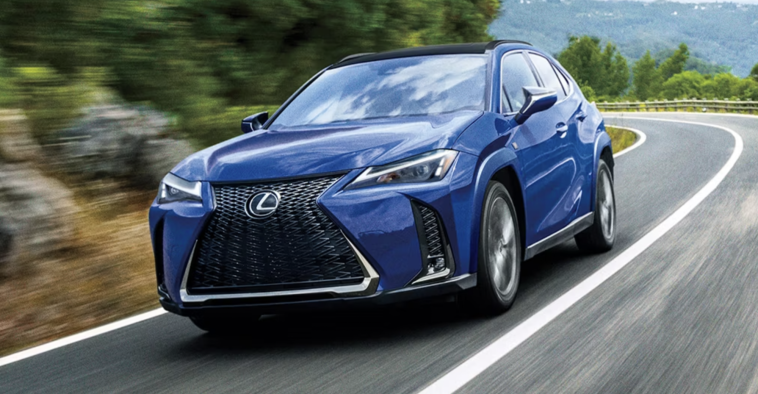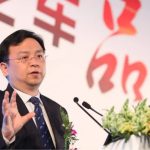Toyota Motor Corporation has reached a cooperation agreement with the Shanghai Municipal Government to jointly promote green and low-carbon development in China. As part of this initiative, Toyota plans to establish a wholly-owned research, development, and production facility in Shanghai’s Jinshan District, focusing on Lexus-branded pure electric vehicles and batteries. The plant is expected to commence operations by 2027.
This move marks a significant step in Toyota’s strategy to deepen its roots in the world’s largest new energy vehicle market. Ji Xuehong, Director of the Automotive Industry Innovation Research Center at North China University of Technology, commented on the development, stating, “China boasts a comprehensive industrial chain for electrification and intelligent technologies. By setting up local production, Toyota can better integrate into China’s supply chain, access advanced electrification technologies, and secure high-quality components, thereby enhancing the competitiveness and cost-effectiveness of its products.”
Ji further emphasized that local production will not only cater to the growing demand in China but also bolster Lexus’s export capabilities. “Producing in China reduces costs significantly compared to manufacturing in Japan, giving Lexus a stronger edge in the global market,” he added.
Lexus, Toyota’s luxury vehicle brand, entered the Chinese market in 1994 and established its official dealership network in 2005. While Toyota operates two joint ventures in China, Lexus has maintained an import-only sales model. However, the brand has faced fluctuating sales in recent years. In 2021, Lexus sold 227,000 vehicles in China, but sales dropped to 176,000 in 2022, a 22.4% year-on-year decline. The brand saw a slight recovery in 2023, with sales reaching 181,400 units, a 3% increase from the previous year. By 2024, Lexus surpassed 180,000 units in annual sales, making it the only imported luxury brand in China to achieve positive year-on-year growth.
Despite this resilience, the broader luxury car market in China has been shrinking. Data from the China Automobile Dealers Association shows that luxury vehicle retail sales in December 2024 fell by 8% year-on-year to 290,000 units, with the market share of luxury brands dropping by 2.5 percentage points to 10.9%.
Li Hui, Executive Vice President of Lexus China, acknowledged the challenges, stating, “The pressure is real. It’s not just about sales numbers but also about keeping up with the rapidly evolving demands of Chinese consumers. Adapting quickly in terms of products, services, and marketing is our top priority and our biggest challenge.”
Under Toyota’s new management structure, Lexus has been tasked with leading the company’s electrification efforts, particularly in China. Currently, Lexus offers 12 models in China, but only one pure EV, the Lexus RZ, and two plug-in hybrid models, the RX 450h+ and NX 400h+. At the Beijing International Automotive Exhibition in April 2024, Lexus unveiled its next-generation pure EV concept models, the LF-ZC and LF-ZL, signaling its commitment to expanding its EV lineup. The LF-ZC is slated for launch in 2026.
Toyota President Koji Sato emphasized the critical role of the Chinese market in Lexus’s electrification transformation. The brand aims to achieve 100% electrification by 2035. As part of Toyota’s broader strategy, the next-generation BEV products developed by the BEV Factory will debut in 2026, with Lexus leading the rollout.
To cater specifically to the Chinese market, Toyota has also ramped up its local R&D efforts. The company established the Intelligent ElectroMobility (IEM) R&D Center in Changshu, Jiangsu Province, focusing on smart and electrification technologies. Additionally, Toyota has partnered with Chinese tech giants like Huawei to accelerate its intelligent vehicle development, as seen in the collaboration on the infotainment system for the ninth-generation Camry.
Looking ahead, Toyota plans to launch new electrified models, including the Platinum 3X and bZ3C, in 2025, alongside plug-in hybrid variants. The company has also set an ambitious target to produce at least 2.5 million vehicles annually in China by 2030.
“China’s pivotal role in global electrification is undeniable,” said Hiroki Nakajima, Toyota’s Chief Technology Officer and Executive Vice President. “The majority of our new BEV models by 2026 will be introduced in China. Our commitment to this market remains unwavering, and we will continue to drive the development of electrified products here.”
SEE ALSO: Geely to Unveil Groundbreaking AI Strategy in Early March
Sign up today for 5 free articles monthly!





GIPHY App Key not set. Please check settings